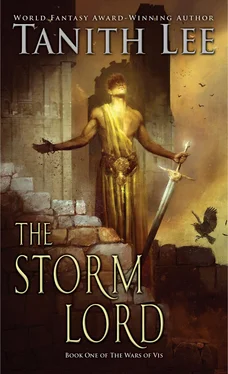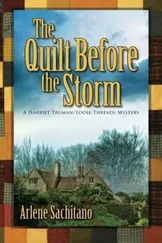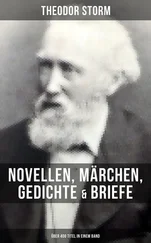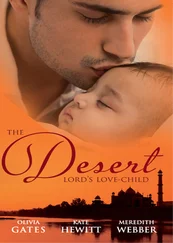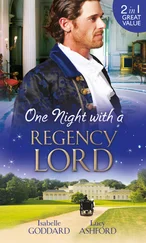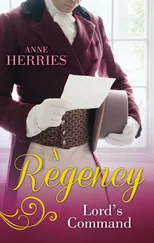In Shansar no wind came.
Mountains divided it from the fertile plains and forests of the south, and mountains thrust up inside it. There was a great deal of water in Shansar; it was a land of rivers and lakes and marsh, with the great rock stacks and steeples jutting in marching lines across it, like jagged stepping stones discarded by giants. It had a hundred or more outlets to the sea. Jorahan, the Vathcrian scholar, who had lived out his old age in a little-known town of the south, had left maps to show these mostly unused ways. There were many kings in Shansar and many tribes. They built ships of necessity. Sometimes they sailed around the coasts to pirate in the south. They worshiped magic, but with them also only their holy men spoke within—or lovers, or families. They had a goddess. Her name was Ashara. She had a fish’s tail, and her arms were eight white cilia such as they occasionally discovered on lake creatures.
Three Vathcrians, one of whom was a guide, rode into the mountains, crossed an ancient pass, came down into Shansar and bartered for a long narrow boat. There was a fourth man with them, not a Vathcrian, a tall man with white hair. They deferred to him as to a king, but he had come to be his own messenger in these lands that answered to no call from the south. There was a hosting place here, too; Jorahan had marked it on his maps. It also had been unused for centuries; only tradition and superstition had seen to its upkeep.
They rowed up great stretches of pearly water, the stranger-king taking his turn with the Vathcrians under skies purple with heat. In villages, women washing clothes stared at their southern garments. Men challenged them.
“I am making for Ashara’s Breast,” the white-haired man told them. That was their name for the old meeting place. They let him go. They had certain antique ritualistic truce laws concerning men who sought Ashara’s Breast. Besides, the warriors who spoke to the white-haired one became convinced that he had reason and purpose. Long boats began to trail a mile or so behind the Vathcrian canoe, not in hostility but mainly out of a desire to witness whatever the white-haired man intended to do.
They reached the place at evening and climbed up its shaggy, moss-grown steeps. Despite its name, it was in no way like a breast, either of woman or goddess. Near the summit stood a ramshackle priests’ dwelling, which housed five or six old priests, stiff in their joints, yet with fierce, dangerous eyes for visitors. One stood in the path of the white-haired man. He held out his staff, then threw it down at the man’s feet. The staff convulsed and became a black serpent. The Vathcrians jumped back, cursing; the Shansarians, who had moved up the mount after them, made signs of religion and magic.
Raldnor looked in the old priest’s face. He said very quietly: “Is the child afraid of the limbs that bore him?”
He reached and took up the serpent, which sprang instantly straight in his hands. He held out to the priest a staff. The old man’s eyes watered. He said: “Do you claim, outlander, to be Her son?”
“How does a man reckon such things?” Raldnor said, looking into the old priest’s eyes. “It would be fairer to say my mother was Her daughter.”
“You blaspheme,” the priest said. He trembled. Then he shut his eyes and tottered. Raldnor gently took his arm to steady him.
“Now you know me,” Raldnor said.
The old priest whispered: “I have seen into his mind. He must have his way, whatever it is to be.”
A murmur went up, like the wind stirring.
“There is a beacon here which summons the kings of Shansar,” Raldnor said. “I have come to light it.”
They led him up to the top of the mount. There was a vast crater there, and in the crater one tall dead tree. None of them knew who had planted it; certainly it had lived long, before death. Its white wasted branches seemed to reach into the apex of the sky. Raldnor struck fire and let the fire have the tree. The flames ran up and up, springing out on the bony boughs. It appeared that the tree was abruptly, miraculously living and in scarlet blossom. Men muttered and fell silent. There had been a legend in Shansar of a change which would alter the world when a dead tree bore red flower.
Night came on, and the tree burned like a red spear dividing the night.
Then, the wind rose.
It blew in black and scarlet gusts. The smoke and the colored sparks filled the sky. For uncountable miles the beacon showed; for uncountable miles they smelled the smoke on the wind.
It was too ancient a sign, too magical a sign for a land that worshiped magic to ignore. Tribe spoke to tribe, forgetting feuds or caste. Kings met up in the barren black rocklands, or in the watery dawn of the lakes. They gathered, and they came toward the ancient place, toward the magnet of the burning tree. For a night which would see the firing of the tree in Ashara’s Breast had been itself a myth and a prophecy.
“How will he speak to them? What will he say?”
It was the third night on Ashara’s Breast. The three Vathcrians sat at their own separate fire, a little down the mount from the priests’ house. There were many fires on the mount that night, and below the mount fires spread out like a million ruby eyes across the dark plateau. Above, the tree still smoked. It had proved good timber.
“How many have come?” the Vathcrian asked again.
“She knows,” another answered. “Half the kings of Shansar, at least, and more on the river road, Url says. As to what he’ll say—he’s a King, and more than that. By Ashkar, I’d fight for him. It’s a fever in me; why, I don’t know. You feel it too, all Vathcri felt it before he was done with us. It’s a fever. They’ll all catch it, those tribal men down there.”
“I love him,” a man said.
Another man laughed and said something witty and crude, poking at the fire.
“No, not love that sits in the crotch, you damned midden-brain. Like love of the land, of the place you were born in, the thing you ache to get back to, the thing you’d fight to hold, die for your sons to keep it.”
“Ah, you romantic. No, it isn’t love I feel. But he wants justice—only that. And he’s a King’s son, yet hell take his turn with us in the mountains or on the boat—I value that in a man. He can lend his hand, yet lose nothing of what he is. The old Kings were like that Besides—this land of black-haired men is rich and ripe for the taking, I’d say. They’ll see that too, those pirates below.”
Later, they rolled themselves in their blankets to sleep.
In the yellow dawn the priests burned incense. The kings came, powerful savage men, each with his two or three personal bodyguards, his eldest son, his magician. They crowded down into the crater, packed together. It was a good place for treachery, but here was no treachery; their laws had no room for it at such a time. The tree was almost done smoking.
Raldnor spoke to them; his voice carried to the edges of the crater, yet the voice was not merely in their ears. It spoke to each of them in their brains. They grew uneasy; the magicians chanted and made passes in the air. There was a humming of chants, like bees.
Then a silence came—gradually, a little at a time. There was a surge, like water bursting from the ground, swelling, filling the crater, spilling down the slope, to take in the rock, the plateau beneath. First one man, then another. Each had a chink, a crack in the adamantine crust which had submerged his mind. Each felt invasion at that chink, that crack, yet it came too swift for any fear. They felt in those moments neither greed nor pity, for he eclipsed their thoughts with his own. He made them, for those moments, himself. They saw his ambitions and his aims, his anguish, his passion and his power—all as if they had been their own. They felt grief and anger and great purpose. Then it was gone, fading like the color from the sky, like moisture in the heat.
Читать дальше
